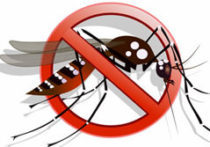The Garland Health Department received a report of laboratory confirmed presence of West Nile Virus in mosquitoes collected in the 500 block of West Vista Drive (GA20). This is the first confirmed presence of WNV in mosquitoes in Garland in 2019. GHD will immediately initiate adulticide spraying throughout the surrounding area on the nights of June 26 and 27, weather permitting, to minimize the risk of human infections. Spraying will be conducted between the hours of 9 p.m. and 6 a.m.
Thus far in 2019, no WNV human cases have been confirmed in the city of Garland but the presence of the disease in mosquitoes means that transmission to humans is possible. Residents are urged to take preventive measures.
View a mosquito trapping and spraying map depicting areas where WNV has been detected and subsequently sprayed to reduce the adult mosquito population.
Prevention
According to the Center for Disease Control and Prevention, the most effective way to prevent infection from West Nile Virus is to prevent mosquito bites. Mosquitoes bite during the day and night. Use insect repellent, wear long-sleeved shirts and pants, treat clothing and gear and take steps to control mosquitoes indoors and outdoors.
Use insect repellent
Use Environmental Protection Agency-registered insect repellents with one of the active ingredients below. When used as directed, EPA-registered insect repellents are proven safe and effective, even for pregnant and breastfeeding women.
- DEET
- Picaridin (known as KBR 3023 and icaridin outside the US)
- IR3535
- Oil of lemon eucalyptus (OLE)
- Para-menthane-diol (PMD)
- 2-undecanone
Tips for babies and children
- Always follow instructions when applying insect repellent to children.
- Do not use insect repellent on babies younger than 2-months-old.
- Instead, dress your child in clothing that covers arms and legs.
- Cover strollers and baby carriers with mosquito netting.
- Do not use products containing oil of lemon eucalyptus (OLE) or para-menthane-diol (PMD) on children under 3-years-old.
- Do not apply insect repellent to a child’s hands, eyes, mouth, cut, or irritated skin.
- Adults: Spray insect repellent onto your hands and then apply to a child’s face.
Tips for everyone
- Always follow the product label instructions.
- Reapply insect repellent as directed.
- Do not spray repellent on the skin under clothing.
- If you are also using sunscreen, apply sunscreen first and insect repellent second.
Natural insect repellents (not registered with EPA)
- CDC does not know the effectiveness of non-EPA registered insect repellents, including some natural repellents.
- To protect yourself against diseases spread by mosquitoes, CDC and EPA recommend using an EPA-registered insect repellent.
- Choosing an EPA-registered repellent ensures the EPA has evaluated the product for effectiveness.
Wear long-sleeved shirts and long pants and treat clothing and gear
- Use permethrin to treat clothing and gear (such as boots, pants, socks, and tents) or buy permethrin-treated clothing and gear.
- Permethrin is an insecticide that kills or repels mosquitoes.
- Permethrin-treated clothing provides protection after multiple washings.
- Read product information to find out how long the protection will last.
If treating items yourself, follow the product instructions.
- Do not use permethrin products directly on skin.
Take steps to control mosquitoes indoors and outdoors
- Use screens on windows and doors. Repair holes in screens to keep mosquitoes outdoors.
- Use air conditioning, if available.
- Stop mosquitoes from laying eggs in or near water.
- Once a week, empty and scrub, turn over, cover, or throw out items that hold water, such as tires, buckets, planters, toys, pools, birdbaths, flowerpots or trash containers.
- Check indoors and outdoors.


